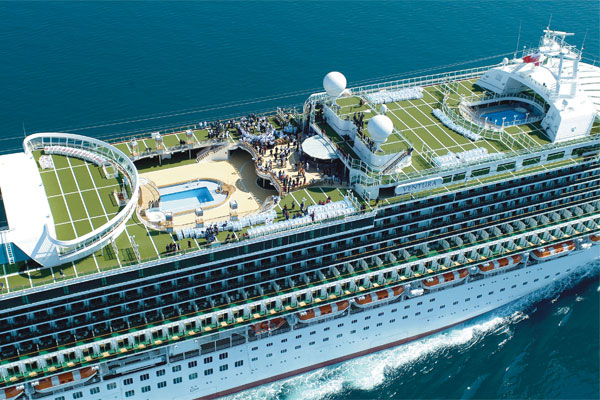The expectation for modern travelers when it comes to customer experience has never been higher. People expect convenient, effortless support when an issue arises and are quick to lose loyalty and switch brands if expectations are not met.
The cruise industry is a competitive one. Fleets are growing. New ships are rolling out with great fanfare. And after passengers had to push back and cancel trips during COVID-19, demand has never been higher. According to The New York Times, “Carnival said bookings for upcoming cruises soared by 45 percent during March, April and May as compared to the three previous months.”
As people take back to the seas, the cruise industry will increasingly compete on CX, as much as on-board activities, ports and food selection. Cruise lines sail to many of the same destinations. Cabins are remarkably similar. It's the customer experience that is now the new competitive differentiator. I’m not just talking about on-board experience, but the entire customer journey which starts long before booking and continues long after the ship docks.
The expectation for modern travelers when it comes to customer experience has never been higher. People expect convenient, effortless support when an issue arises and are quick to lose loyalty and switch brands if expectations are not met. Cruise lines need to meet these expectations to deepen customer relationships and secure repeat bookings. A staggering 95% of consumers cite customer service as important in their choice of and loyalty to a brand and 61% have switched brands due to poor customer service.
In a new study, though, the cruise industry is leaving a lot to be desired. Priority must be paid to enhancing the customer support in order to build long-term relationships and unlock future revenue.
The state of cruise line customer service
In Netomi’s Customer Service Benchmark Report – Travel and Hospitality Edition, we measured how cruise lines provide support on email and social media, two of the leading digital support channels.
Travelers expect to receive service through any channel and on any device. We were shocked that globally, only 30.4% of cruise lines provide support on both channels. Nearly 4 in 5 (79.6%) offer email support, but only 42.9% have Twitter profiles with the ability to send direct messages. Even worse than not being available, is ignoring customers all together. The study revealed that customers are ignored 56.4% of the time on email and 61.9% on Twitter.
On social media, nearly 50% of consumers expect a response on social media questions or complaints within an hour, with 18% expecting an immediate response. The average response time for cruise lines, though, is over 30 hours on Twitter, compared to 23.2 hours on email. Royal Caribbean Cruises was the fastest response on Twitter, getting back in less than one minute with PONANT responding to emails quicker than any other cruise line, responding in 6 minutes.
“Every brand knows how important customer service is to their business. Then you read stats from a report like this that indicates how companies fail at something so easy as simply responding to an email and social media posts. The opportunity to displace a competitor is there, often because the bar to deliver a quality customer experience is low,” said Shep Hyken, customer service and experience expert and New York Times bestselling author.
Bringing AI on board can scale the CX that customers demand
To scale the customer service that travelers expect, cruise lines need to adopt AI. Leveraging AI-powered chatbots, cruise lines can automatically respond to repetitive questions like booking options, room comparisons, on-board activity and dining reservations, insurance, and health and safety protocols. This lets agents focus on more complex customer needs, decreasing resolution time. Having AI-agents working alongside human agents also enables cruise lines to scale up support operations during expected and unexpected spikes in ticket volume with ease, such as the onset of a Pandemic, on outbreak or other crisis situation.
Full steam ahead
As the cruise industry braces for a surge in travelers in 2022 and 2023 from pent-up demand and new bookings, cruise lines need to plan now to keep travelers happy. The industry is falling short of expectations today. To turn short-term boon into sustainable growth, cruise lines need to prioritize the customer experience to sail into a future of long-term, profitable relationships.
Can Ozdoruk is the Vice President, Marketing at Netomi.





























































































































































































































